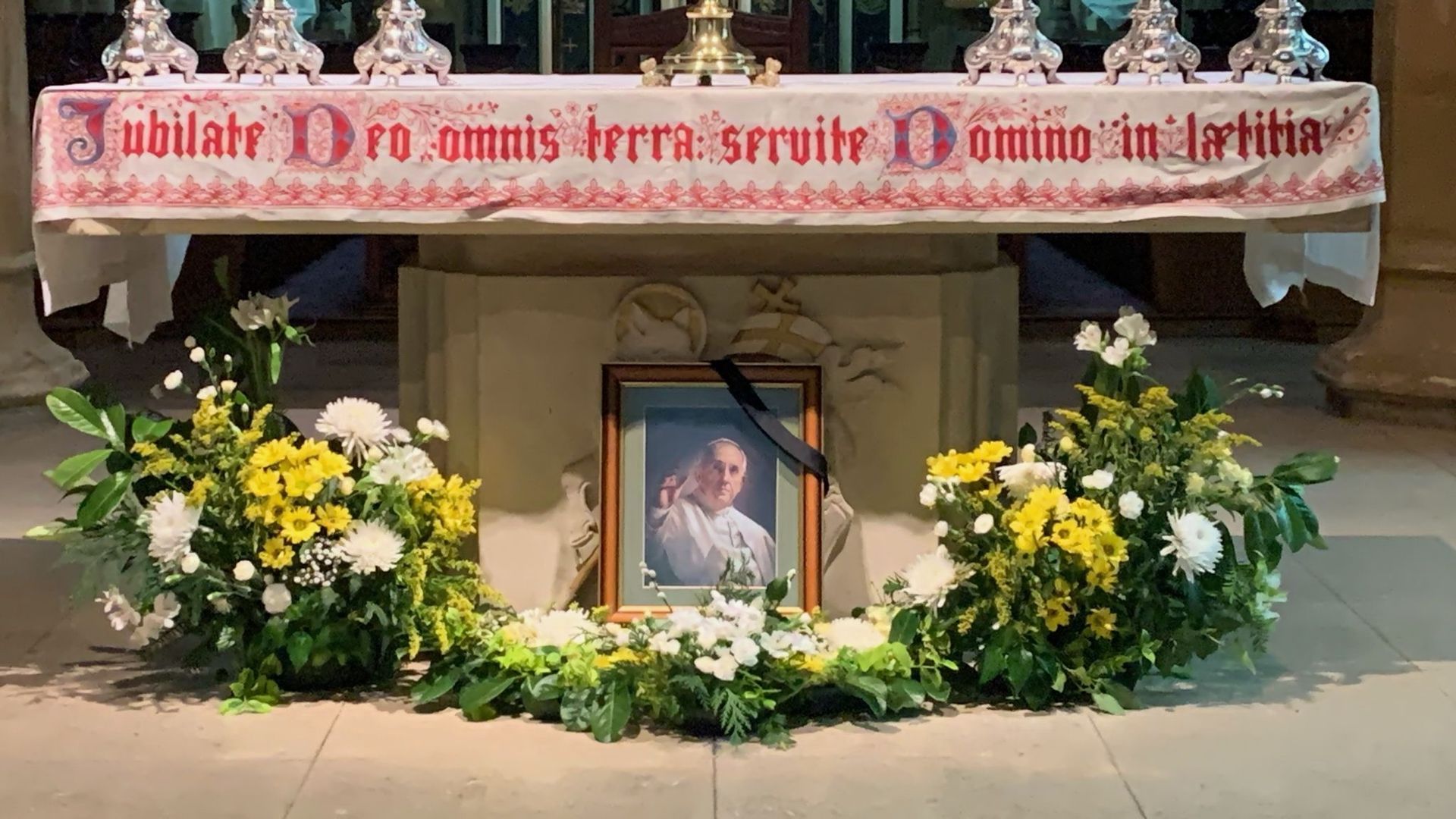Pope Francis 1936-2025
New Title

Pope Francis RIP
Pope 2013-2025
Born 1936, Died 2025
I was in St Peter’s Square when the white smoke went up from the Sistine Chapel on the election of Pope Francis. It was an amazing experience to see the crowds flood the square from the corners of the city. Then came the announcement: the new pope had chosen the name Francis. He stepped onto the balcony, bowed his head, and asked us to pray for him before he blessed us.
In that moment, a phrase came to my mind—one that has remained with me and shaped how I’ve come to understand the last two papacies. It’s from G.K. Chesterton’s biography of St Francis of Assisi: “What St Benedict had stored, St Francis scattered.” Chesterton was reflecting on how the Benedictine centuries of careful preservation gave way to a Franciscan spring of evangelical mission. That night, I sensed that something similar might unfold in our time. Where Pope Benedict was the wise custodian, Francis would be the joyful missionary. And so it proved to be.
Pope Francis—the first Jesuit pope, the first from the Americas, the first to bear the name of the Poor Man of Assisi—carried the Gospel into the world with a new-found freedom. While St Ignatius may have shaped his vision of a discerning, synodal Church, it was St Francis who inspired his closeness to the poor, his concern for the vulnerable, and his love for creation.
In his first encyclical, Evangelii Gaudium, Francis offered a vision of a Church driven by “a missionary impulse capable of transforming everything.” He dreamed of a Church with open doors, a Church that goes out rather than staying in—a “field hospital” for the wounded, a refuge for the broken, a community that heals, preaches, and walks with people in their struggles.
On the balcony of St Peter’s he had said that the Cardinal’s had called him from the ends of the earth, referring to his native Argentina. He would be a “Pope of the Peripheries.”
He criticized when he thought the church was inward-looking and self-serving. He once told the Brazilian bishops, “Today, we need a Church capable of walking at people’s side … a Church which accompanies them on their journey.” It was a vision that he lived out until his final days. One small sign of this is that every day in recent months, even, until last Saturday when he was in hospital, he would call the small Catholic parish in Gaza to see if they were okay, assure them of his prayers and demonstrate his closeness.
Of course, not everyone found Pope Francis easy. Some found him confusing, unsettling and even frustrating. Perhaps we have all been unsettled by Pope Francis along the way. It is possible to do a more nuanced critique of his papacy, and his priorities.
But I believe the Holy Spirit gives the Church the pope we need for our times. In Pope John XXIII, an old man open to the new. In Paul VI, a patient bridge-builder. John Paul I briefly gave us his smile. In John Paul II, was a witness on the world stage. In Benedict XVI, a teacher pope, brought clarity and insight. And in Francis—a pastor, who taught us as a Church to look beyond ourselves and reach out, with the heart of Christ that beats with compassion.
I think of his final days. His last message read aloud on Easter Sunday was a plea for peace in our fractured world. His final gesture was to be among the people, in the popemobile, barely able to move but present. His last public tweet took us to the heart of our faith: “Christ is Risen!” he said. “These words capture the entire meaning of our existence—for we were not made for death but for life.”
In that faith in Christ, in the joy of the Resurrection we commend Pope Francis to God. There is a Polish saying that those who die in Easter Week go straight to heaven holding on to the garments of the Risen Christ.
Dear Pope Francis, our father, our shepherd: may you now enter into the joy of the Risen Christ. May you find your rest in the house of the Father, among the saints whose names you bore, and may you hear the voice of the poor and the little ones—those to whom you gave your life—welcoming you home. As the song of commendation puts it:
May the angels lead him into paradise;
may the martyrs receive him at his arrival
and lead him to the holy city Jerusalem.
May choirs of angels receive him
and with Lazarus, the poor man
grant him eternal rest."
(The In Paradisum, words from the Funeral Liturgy)









